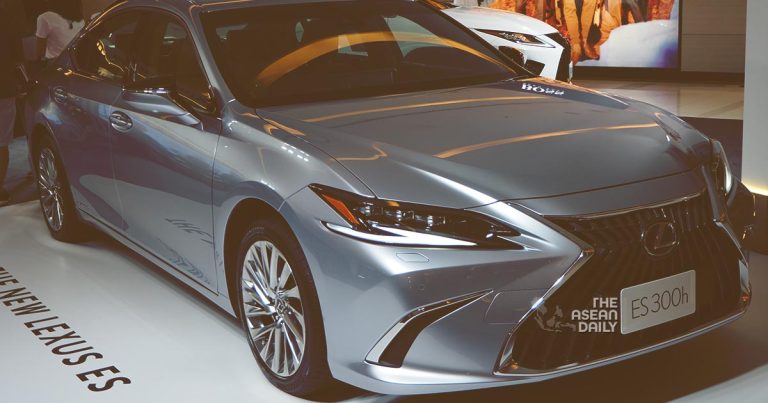29-6-2023 (SINGAPORE) ComfortDelGro Corp, the largest taxi operator in Singapore, has placed an order for 30 Lexus ES300 Hybrid sedans to be used as premium taxis. The luxury cars are expected to hit the roads in August, marking a departure from the traditional choice of taxi brands in the city-state.
The deal is estimated to be valued at around $10 million for Lexus dealer Borneo Motors. ComfortDelGro revealed that the cars will be delivered between August and September this year. When asked about the decision to choose Lexus over other luxury brands, a representative from ComfortDelGro simply stated, “It’s a business decision.”
Industry observers believe that Lexus is an attractive choice due to its competitiveness among luxury car manufacturers. With a retail price just over $300,000, the ES300h is approximately 30 percent cheaper than its equivalent Mercedes counterpart.
This move by Lexus recalls a similar decision made 27 years ago when ComfortDelGro’s CityCab became the first taxi operator in Singapore to purchase Mercedes-Benz taxis. Initially acquiring a fleet of 30 Mercedes E300 turbodiesel sedans in 1996, ComfortDelGro has expanded its Mercedes fleet to several hundred over the years. Other taxi operators followed suit, and by 2007, there were approximately 1,000 Mercedes-Benz taxis on the road.
ComfortDelGro has stated that it currently has 150 Mercedes taxis remaining, and the new Lexus cabs will replace some of the Mercedes-Benz premium taxis that have been decommissioned.
While Lexus cars have been utilized as taxis in various locations around the world, including Dubai, the UK, New York, Germany, and even Cambodia, their inclusion in the Singaporean taxi fleet has come as a surprise.
According to sources, there were reservations within Toyota Motor Asia Pacific (TMAP), the regional headquarters of the manufacturer located in Singapore, regarding this move. However, TMAP could not be reached for comment.
Jasmine Wong, the CEO of Inchcape Singapore and Greater China, the parent company of Borneo Motors, stated that TMAP was supportive of the decision. When asked about the potential impact on Lexus’ appeal to private car buyers, Wong mentioned that the fleet size is small and targeted at premium customers, thereby increasing the brand’s exclusivity.
However, Dr. Zafar Momin, an adjunct associate professor at the National University of Singapore’s business school, believes that the inclusion of luxury cars as taxis could affect the brand’s image. He argued that in markets like Singapore, where consumers are highly brand-conscious and cars are costly, driving a Lexus past taxis of the same make, or worse, the same model, could undermine the brand’s allure.
Momin also highlighted that luxury brands have been used in taxi fleets for a long time to achieve sales targets, although it may not be an ideal situation from the car maker’s perspective. Nonetheless, this strategy helps generate volume and achieve scale, which is crucial for maintaining competitiveness in the market.




